Ellie Harwood was eight when she first started gaming, but says she decided to stop playing in her teenage years because she was outnumbered by boys.
“It was those messages of ‘it’s a waste of time’ and ‘it's a boy’s thing’. There was no representation for me so I stopped gaming as much,” the now 32-year-old says.
It wasn’t until she started acting for a comedy YouTube series about games called Viva La Dirt League in 2017 that she says she found her passion for gaming again.
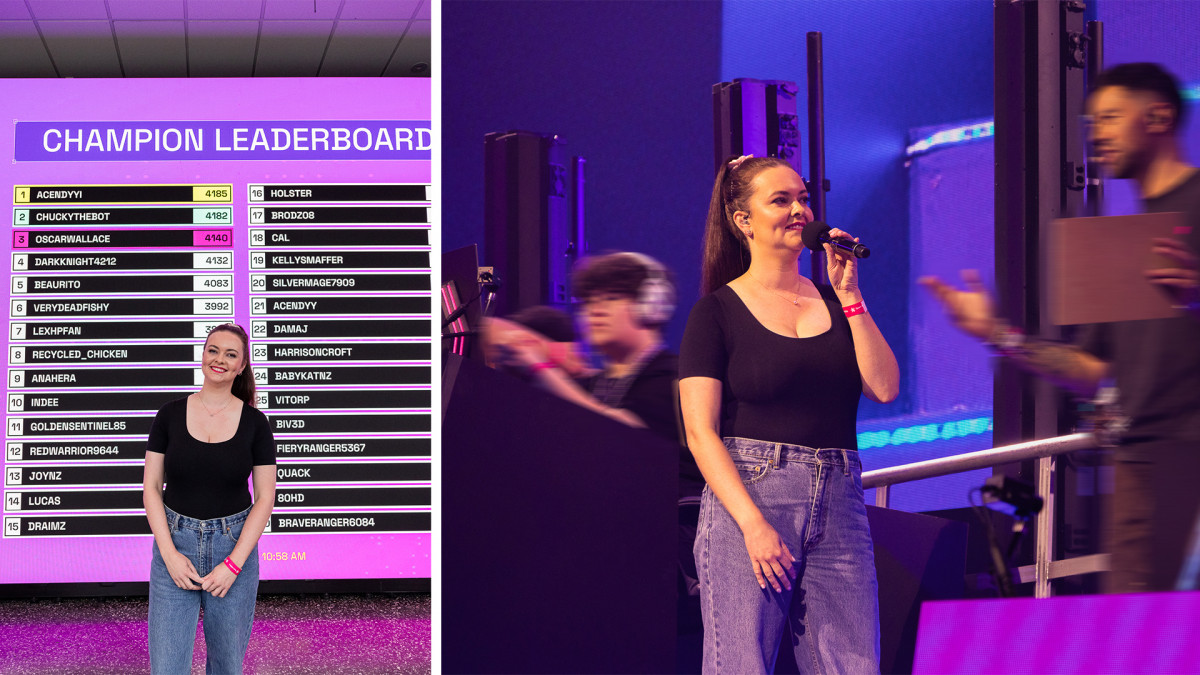
Ellie Harwood at the Spark Game Arena Live on September 7. Photo by Vivien Beduya
Now, she hosts the Extremely Casual Gamers podcast, and was the MC for The Rise Cup tournament featuring Fortnite in the first-ever Spark Game Arena Live on September 7.
“I really want to try and continue showing my face in the gaming area, inspiring other girls and younger girls to get into gaming and know that it's absolutely okay to do so and you’re very welcome there,” she adds.

The Rise Cup featuring Fortnite in the first-ever Spark Game Arena Live on September 7. Photo by Vivien Beduya.
The growing number of female gamers
According to 2023 research from the Interactive Games and Entertainment Association, 48% of gamers in New Zealand are now female.
Showing young girls they can game too, Taylor Morgan is an Australian professional gamer and content creator who’s built an online fan base of more than 850,000 followers across YouTube, Instagram and TikTok.
The 25-year-old was also a commentator for The Rise Cup tournament.
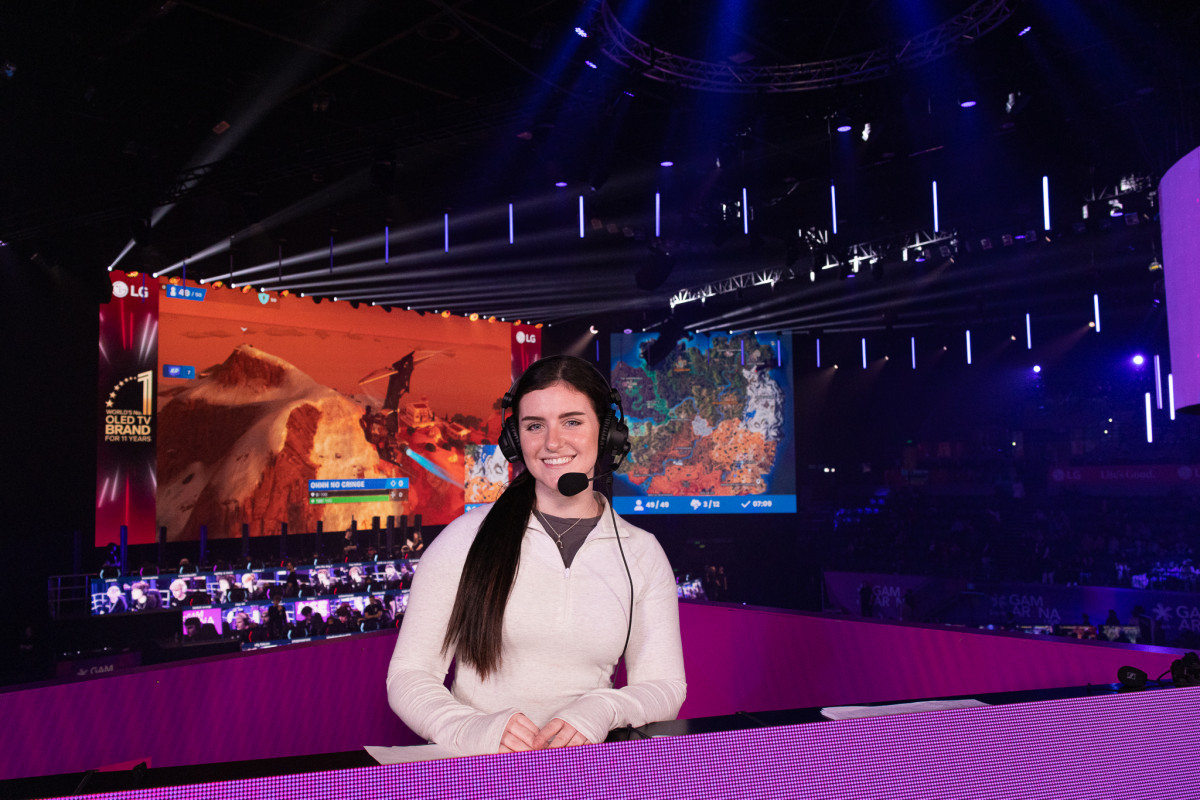
Taylor Morgan is an Australian professional gamer and content creator who’s built an online fan base of more than 850,000 followers across YouTube, Instagram and TikTok. Photo by Vivien Beduya.
When asked what got her into gaming, Taylor says she has her dad to thank for her successful career.
“When I was about 10, my brother and I used to play the original Call of Duty with my dad.
“We were not very good at it at all, but what was once a weekend activity became a hobby of mine throughout high school and now into my full-time job.”
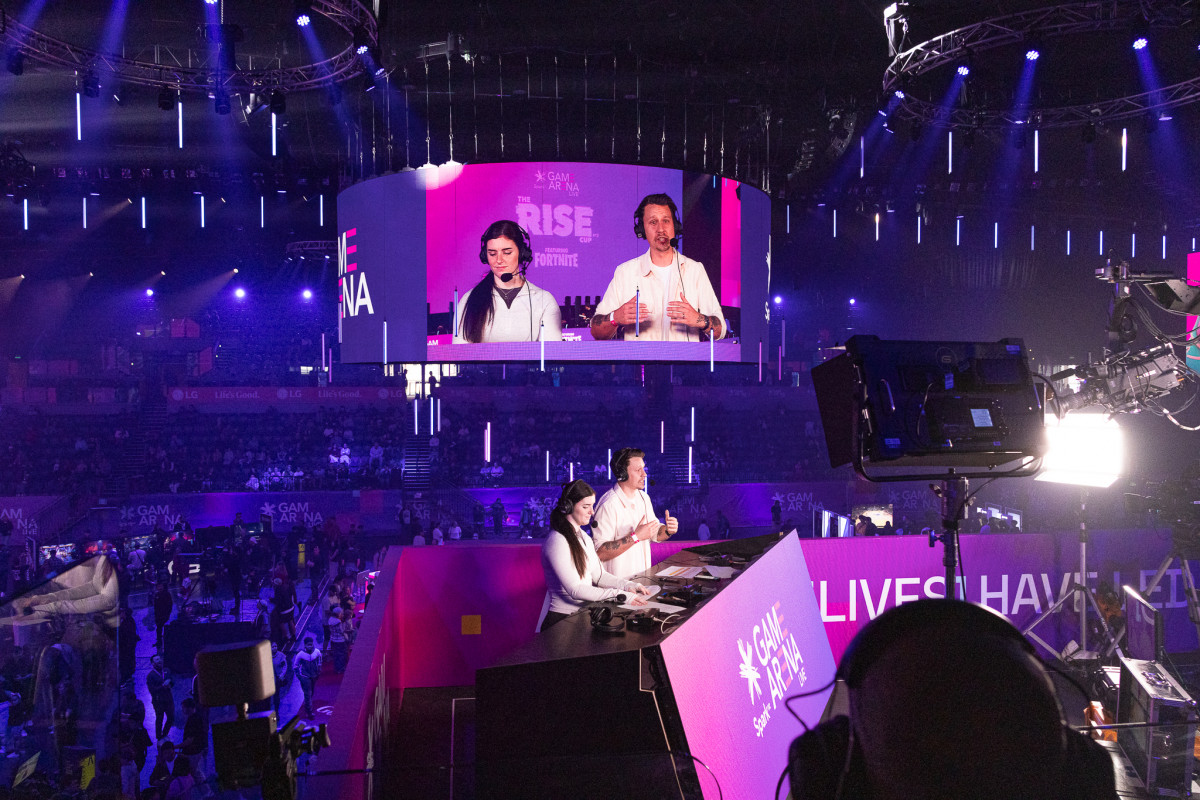
Taylor Morgan (left) and Guy Mansell (right) commentating on The Rise Cup tournament. Photo by Vivien Beduya.
Staying positive in a toxic environment
But being a woman in gaming has its own set of challenges. For its annual Women Gamers Report, Bryter, a London-based market research company, surveyed 1,004 US and UK females and other genders (excluding males) aged 16 - 65.
In 2023, the report found 65% of women have experienced toxicity from men in online multiplayer games, ranging from verbal abuse (47%), sexual harassment (34%) and rape threats (12%).
The study also shows this toxicity has led to more than 1-in-4 women not playing as many online multiplayer games as they would like to and 33% are hiding their gender while playing. It also found 1-in-5 women say it has a negative impact on their mental health.
When asked how she stays positive in what can be such a toxic environment, Taylor says it’s about remembering why she games in the first place.
“Gaming is fun and for every one terrible interaction, you can find a hundred amazing and positive interactions.
“Remember those good times and all those positive outcomes and try your best not to let the negative ones outweigh that.”
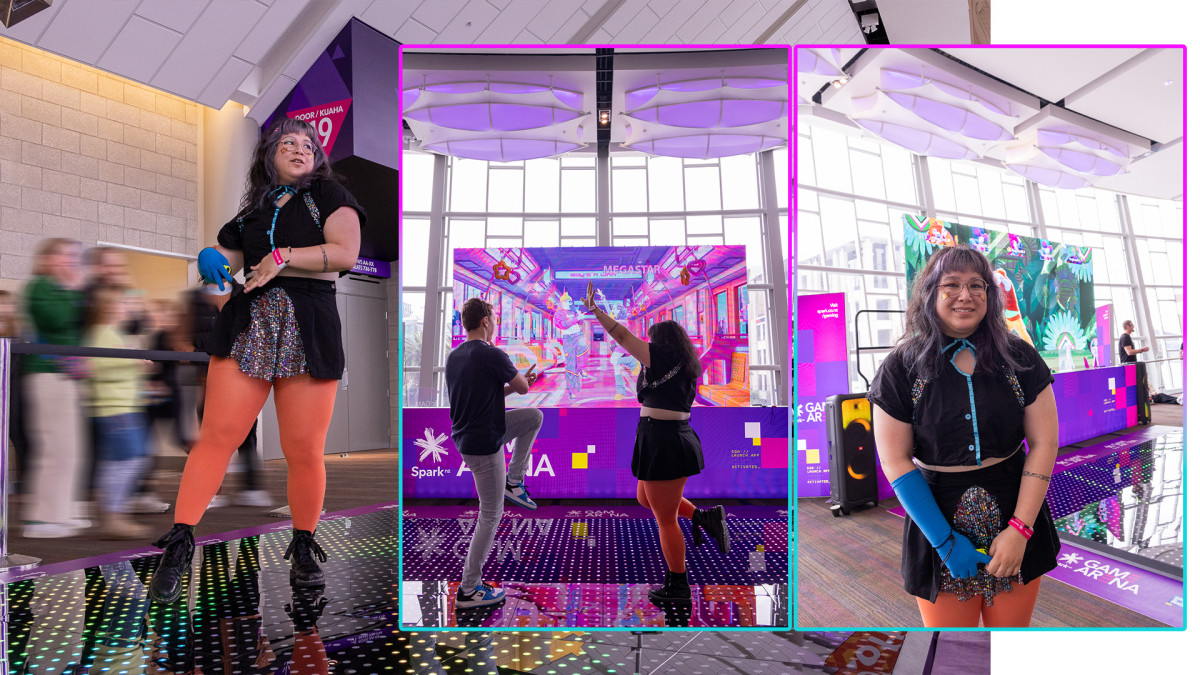
Karola Kai Shau and her friend showing their best moves at the Just Dance dance floor by Ping Zero. Photo by Vivien Beduya.
But she also says the toxic game play can impact women differently, and encourages them to handle it however they see fit.
“I feel like people are often told to just ignore it and that's an option for some people. But for others, it's speaking out and fighting against it.
“However, keep in mind the people saying these terrible, awful things to them online in this gaming space have deep, deep issues that stem so much further than you, who just decided to get on the game today.”
For Ellie, she says she avoids online games as she doesn’t play them very often, but says she also chooses to ignore toxic behaviours.
“I try and do things to smash the stereotypes that we’re not gamers and I just try and focus on pushing forward.
“Creating podcasts, talking about gaming in a woman’s space and playing games… Just putting my face front and centre to show those men we're here too and we ain’t leaving.”
Lack of real female representation in games
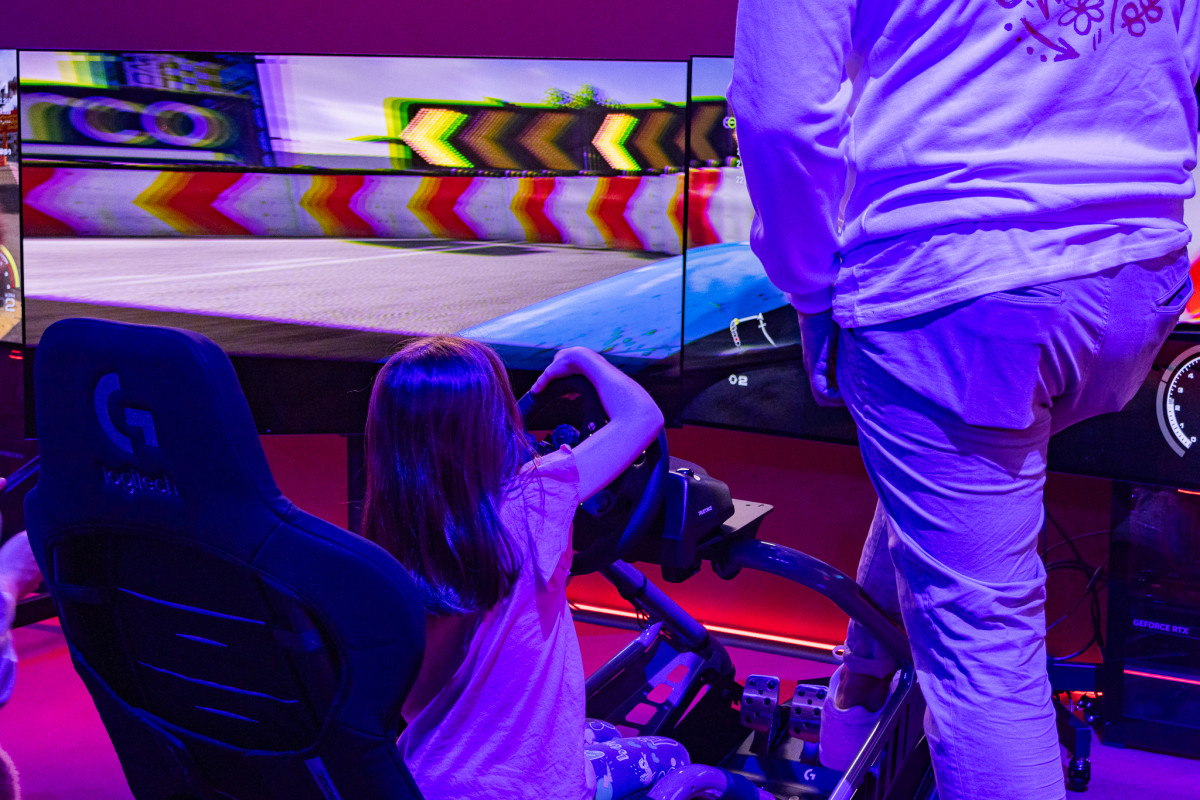
Photo by Vivien Beduya
Ellie says one of the reasons she stopped gaming in her teenage years was because there wasn't any female representation in the games she played.
She says New Zealand could invest more into the sector and encourage young girls to play and be game developers too.
“Once you have more developers who are women creating games with a female gaze, you'll eventually get more women playing those games and I think we're on our way… But I do think that we could have a lot more representation still to this day.”
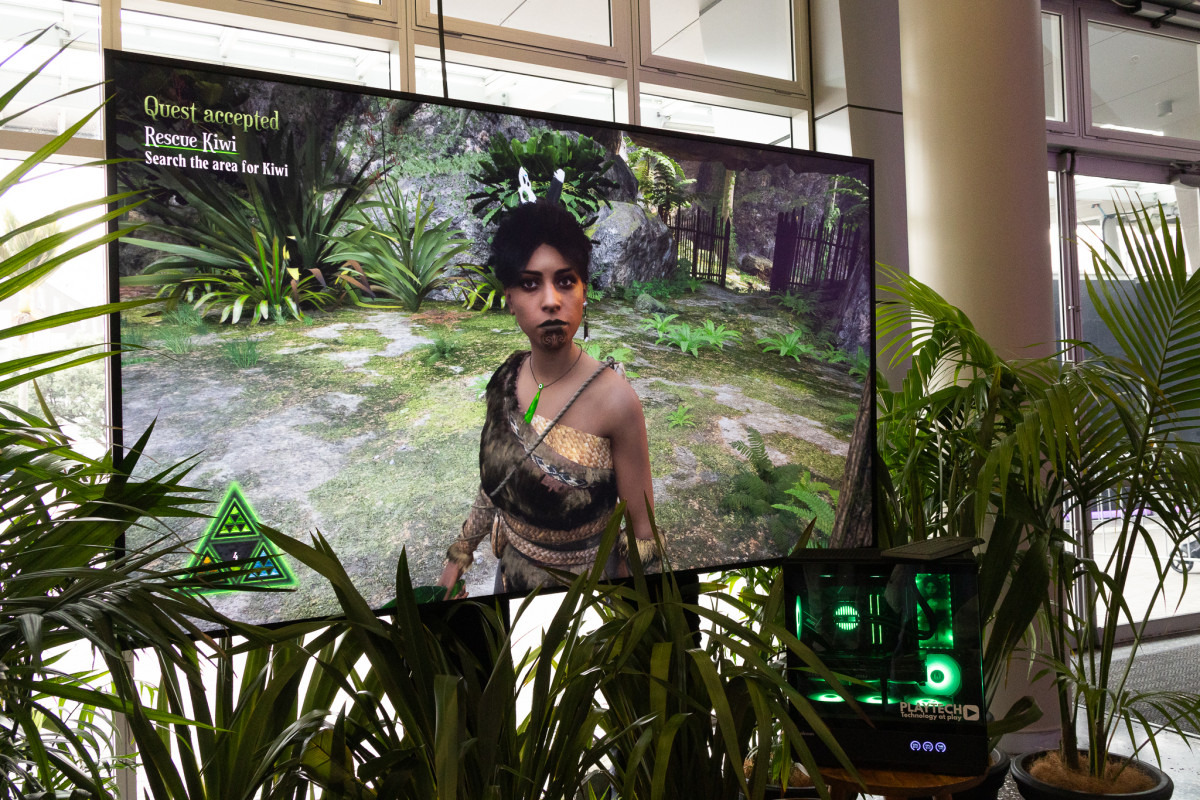
The adventure game Guardian Māia has a wāhine Māori lead and was developed Metia Interactive, a Māori led team of developers based in Auckland. Photo by Vivien Beduya
She adds representation isn’t just about creating female or people of colour characters in a video game.
“It’s getting a woman to develop that female protagonist instead of it being a man through their male gaze.”
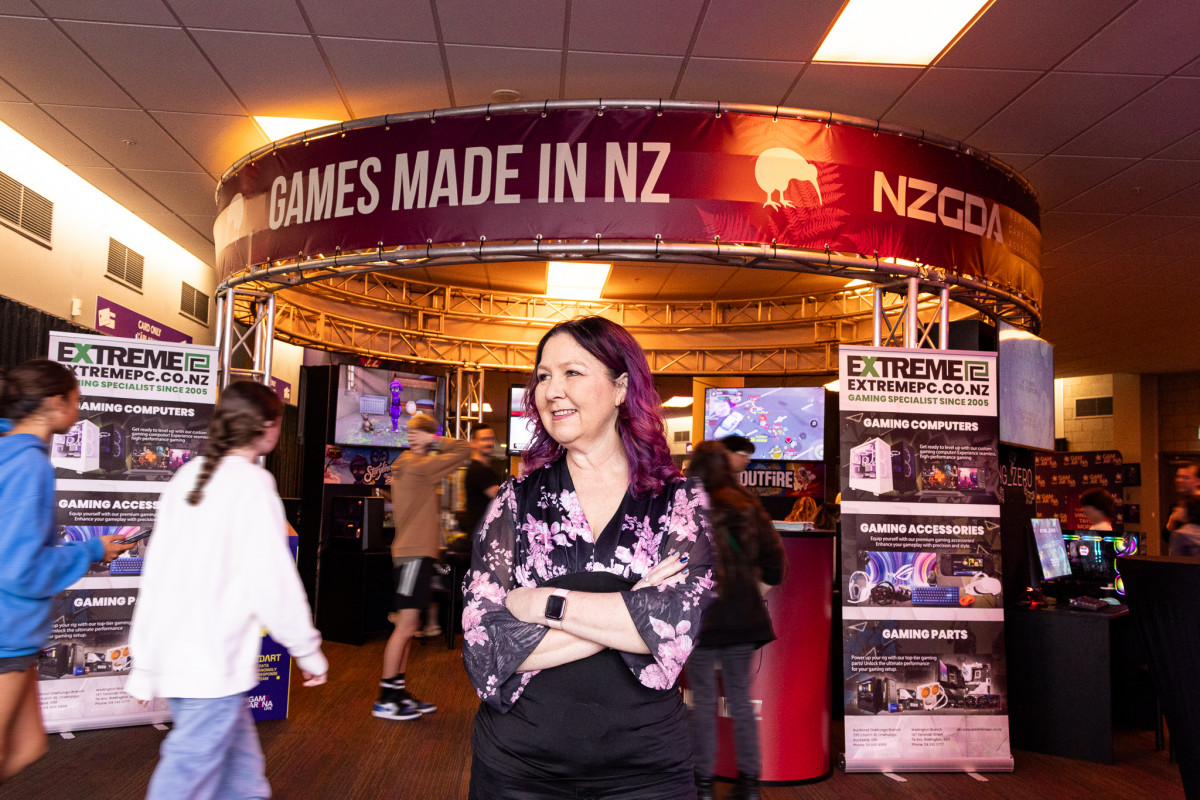
NZ Game Developers Association executive director Joy Keene. Photo by Vivien Beduya.
NZ Game Developers Association executive director Joy Keene says women have an important role in game development as they’re detail-oriented, great organisers and are empathetic.
“In a game development context, that means they're really good at Q&A testing, project management and communications. There’s definitely a lot of space for women in the game development industry.”
Looking back on three decades of being in a male-dominated tech industry, she says she’s only been in the gaming development space for 18 months and says it’s leaps and bounds ahead of being inclusive compared to other tech industries like IT.
“We're very diverse so it’s not just women that are lower in numbers, it’s neurodiverse people and the LGBTQIA+, so men are very accepting of us being here and realise it's a good thing to have women in this industry.
“Men [in gaming development] are much more inclusive … because everybody is insanely creative, so very open to different ideas of doing things and different ways of seeing things.”
But she says there are still societal misconceptions about female game developers, like claims they’re not as skilled as men.
Joy says there’s an assumption there’s nothing “hardcore” about women in game development, but she says their skills have nothing to do with their gender.
“We go through the same tertiary process as men, we get the same qualifications as men.
“Women have really proved themselves across all sorts of gaming, esports… competitive gaming spaces and often, we actually outperform our male counterparts.”
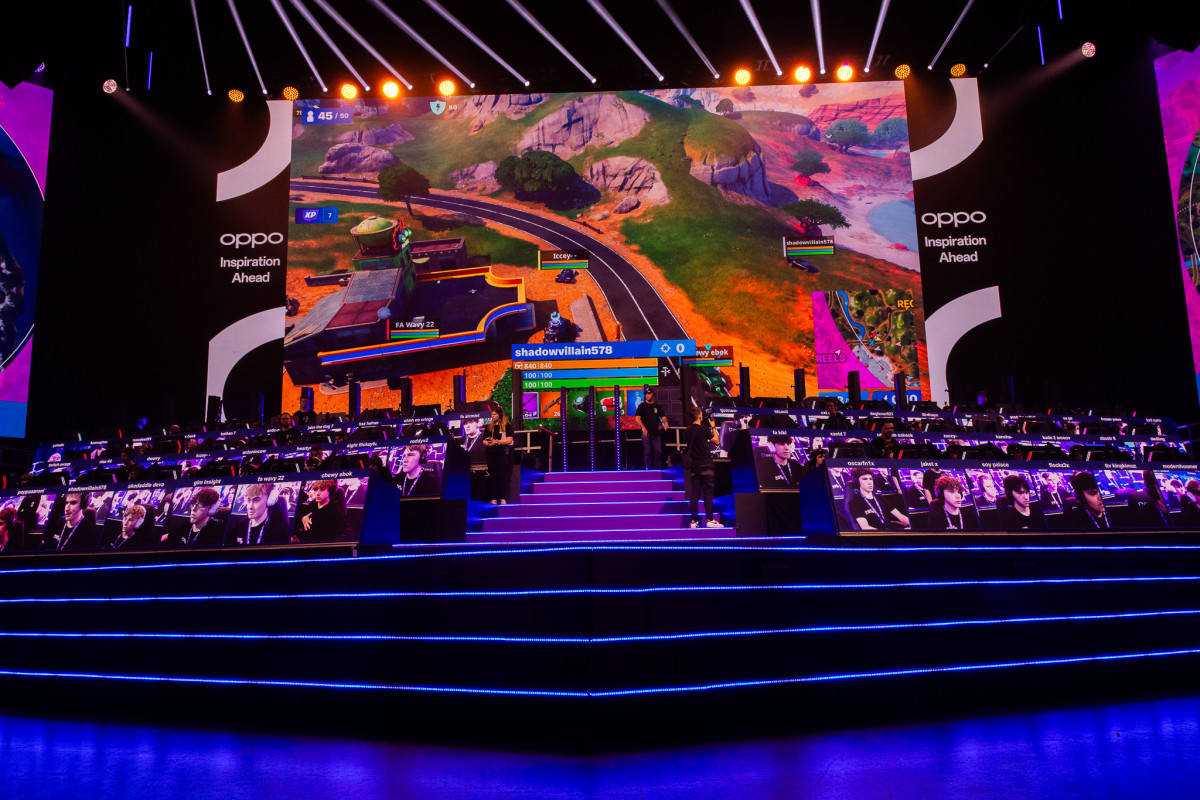
The Rise Cup featuring Fortnite. Photo by Vivien Beduya.
More stories:
Compound interest: What is it and why you should care
Your money should be working as hard as you do.
How to get a job when you've never had one
“It’s about looking outside the box … on what you can do rather than what you haven’t done.”
Why AI facial recognition has a discrimination problem
“It’s only as clever as the engineers and the people who put data into it.”